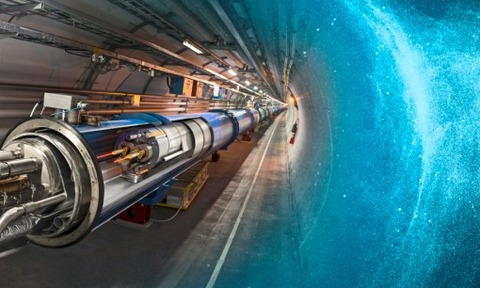Editor's comment | Ring in the new
8 Apr 2015

As the world’s largest scientific experiment gets underway, what are the Large Hadron Collider (LHC) physicists hoping to discover this time around?
In an interesting juxtaposition between implications of new life and the search for new knowledge, the LHC was finally restarted at CERN’s accelerator complex on Easter Sunday.
The LHC had been offline for more than two years as much of the system had to be overhauled and upgraded.
Now, however, two proton beams are once again travelling at a fraction below the speed of light, rotating in opposite directions around the LHC’s 27 kilometre ring.
Because of the system upgrades and extensive maintenance work, LHC now operates at ’unprecedented energy’, boasting 13 TeV (teraelectron volt) per proton beam - double what it achieved last time.
The sheer magnitude of this experiment is pretty difficult to sum up as it is unclear what the results will reveal.
However, if you look back at LHC’s first outing in 2012, the illusive Higgs boson particle was discovered, culminating in François Englert and Peter Higgs being awarded the Nobel prize in physics in 2013.
Essentially, LHC is designed to replicate the conditions that existed in the very first moments after the Big Bang.
Once the two proton beams have been magnetically forced to collide with one another later this year, many of the conditions present in the moments immediately after the Big Bang will be replicated and can then be explored and scrutinised.
Physicists at CERN are hoping to discover and confirm a number of anomalies that go beyond the Standard Model - namely the existence of dark matter.
According to CERN, dark matter could explain how galaxies in our universe are able to rotate with such speed, yet not tear themselves apart.
Dark matter could also account for 26% of all matter in the universe, CERN said.
CERN says our current knowledge of matter only explains about 4% of the content of the universe.
However, regardless of what is or isn’t discovered throughout this experiment, LHC remains one of the modern world’s foremost triumphs.
But I for one think the results will once again allow us to ring in a new era of scientific discovery.

